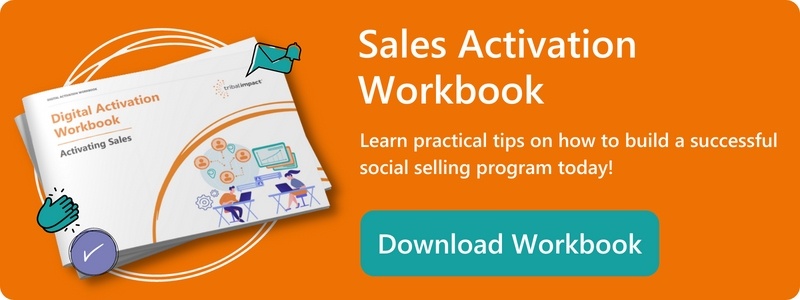When setting up LinkedIn Sales Navigator, many businesses wonder which employees should have a license.
While Sales Navigator licenses can be invaluable to your social selling success, they’re also expensive. Which means you don’t want to waste the cost on someone who won’t use it effectively.
The Right Behaviours
Anyone who uses social media for sales or advocacy needs to approach it in a different way to someone who’s using it purely to connect with people they know. This requires a mindset shift, which takes time, but it’s worth it. The mindset shift is what will set them up for success.
You’ll be able to spot someone who has the potential to be a great Sales Navigator user because they’ll already understand the basics. They:
- Will have a professional profile – that they may have already optimised
- Will engage with others in a polite, personal and professional way
- May already be creating content.
Understanding The Basics
Ideally, you want an employee to understand at least the basics of social before they are given a license.
They need to know best practice etiquette on social media and the importance of getting this right for their own personal brand as well as the employer’s brand.
These are the cornerstones of social media usage in B2B, so good knowledge of these is important for you to feel comfortable with an employee posting on social media, and for their efforts to pay off.
Having an up-to-date social media policy will help with this. It can lay out what’s expected of employees who become a social seller or advocate. It should include what they can say, what they should avoid, and maybe some information on how they could phrase things.
You’ll never be able to fully control what someone says or does on social media, though, so it’s important to trust the employees who have a license to accurately represent the brand.
You won’t be able to cover everything in a social media policy, but you will be able to point them in the direction of the dos and don’ts to ensure they behave as professionally as possible. (While still encouraging their personalities to shine.)
Finding The Right Employees
How can you tell if someone has this basic knowledge?
One way you can work this out is by getting them to fill in an application form where they can also confirm that they’ve read the social guidelines.
If possible, you can check their profile before you give them a Sales Navigator license, too. It’s a lot easier to do this if you have 100 employees compared to 100,000, though.
Checking their profiles before adding them to the programme gives you the opportunity to review if they represent the company appropriately.
Think about when the business goes to conferences. Employees are expected to stand at the booth and represent the company. There might be a required dress code or way of talking.
Their LinkedIn profile is like their virtual representation of the company. If the tone or style of their profile doesn’t connect with the business, and they don’t need a Sales Navigator license, that’s not an issue, it simply means that it would be best to consider the employees who do embrace social media in a way which is compatible with your brand.
But if they have a Sales Navigator license, how they come across on their LinkedIn profile matters. It’s not just a reflection of them, it’s also a reflection of the business, its culture, and its values.
If they’re part of something the business is paying for, their profile should represent the company as much as themselves.
It doesn’t have to follow a template, but it does have to look professional and complete.
This will reassure anyone who views their profile that the employee is the type of person they want to connect with, and the company is the type of brand they’d like to do business with.
If a prospect views an incomplete profile, or one that’s filled with typos, swearing, or other content that looks unprofessional/goes against company values, it’s more likely to put them off, damage brand trust, and cause them to go elsewhere.
An employee’s profile should also reflect what they’re doing for the business. This will demonstrate their knowledge to potential buyers, showing that not only are they an expert in their field, but they also work for a highly competent company.
Conclusion
When deciding which employees should have a LinkedIn Sales Navigator license, it’s important to consider how they’re already using LinkedIn. Do they use it regularly? Do they understand the rules of social media? Do they understand how to use social media from a business perspective?
If the answer to any of these is no, it is entirely possible to provide training and enablement. This is valuable for employee development and for upskilling employees with modern digital business skills. Ensuring that your employees are well equipped for success in social media is a key part of ‘going digital’ and by doing so, you can identify those who embrace social and therefore, could benefit from an expensive Sales Navigator license.


